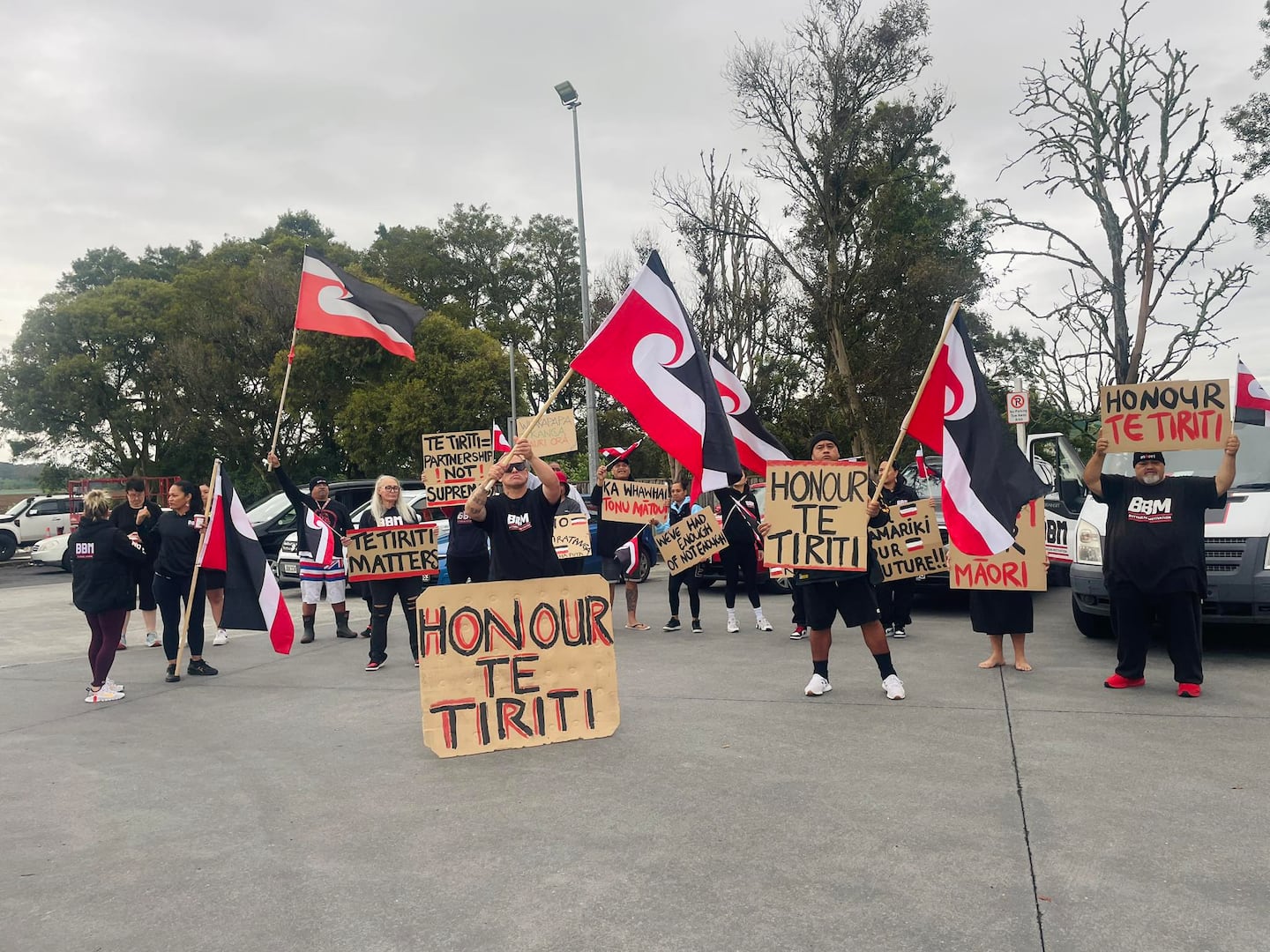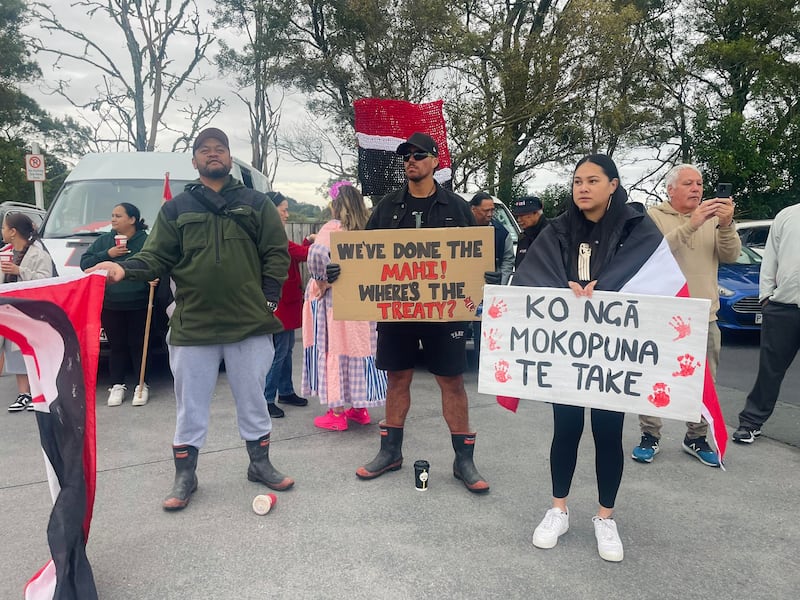Prime Minister Christopher Luxon doesn’t anticipate today’s protest by Māori against his government’s policies will be a continuing feature of his term in office.
A nationwide ‘call to action’, supported by Te Pāti Māori, has seen hundreds of people take to their vehicles and disrupt traffic flows in many of the main centres, and some regional towns this morning, in a stand against what Te Pāti Māori president John Tamihere calls a coalition anchored on anti-Māori sentiment.
Luxon, however, said his government was focused on delivering outcomes that will benefit Māori and non-Māori New Zealanders.
“I’ve been trying to be really clear with New Zealanders, this country needs a turnaround. The one word we have to focus on is delivery, and actually getting things done for them.”
When asked by media what he made of protests being organised so soon into his Prime Ministership and if it would plague his time leading the government, he disagreed.
“We are here to get things done for the New Zealand people, whether they’re Māori or non-Māori. We want to see outcomes improve for everybody.
“What I want Māori and iwi across the country to understand is we are deeply committed to improving outcomes for Māori. Period. What I said to you before was I don’t think the last six years have been good for Māori. I think Māori have very well particularly under National-led governments in the past, and I they think they are going to continue to do so.”
Tamihere, speaking to teaonews.co.nz on Monday, said the coalition between National, ACT and New Zealand First is one that was anchored on anti-Māori sentiment, evidenced by the policies all three parties agreed to first, which he said would set Māori back 35 years.
“We either lie down after 35 years of winning incremental, slow, painful change and then all of a sudden it gets turned over inside of three years by a minority-majority government.”
Protests under way
Police are advising commuters to allow additional time to reach their destinations this morning
Planned protests are now under way in locations across New Zealand., along with several other cities and towns.
In Auckland, the carkoi caused gridlock across the motorway network until the protest dispersed at about 8.40am.
No arrests were made.
Protesters at Parliament.
More than 1000 protesters gathered on the Aurora Terrace overbridge to signal to motorway traffic their protest and then began to march on Parliament.
An RNZ reporter at the scene, Tessa Guest, says the crowd has swelled to more than 600 people. They were singing waiata, whooping and waving signs as they reached Parliament.
Police blocked off some side streets.
A surprise hotbed of protest was Whangarei where 30 protestors had been expected and 600 turned up.
Meanwhile the protest has spread to Nelson this morning and a hikoi is planned to meet at Christchurch’s Bridge of Remembrance at 5.30pm.
Public servants backed to protest on their own time
Meanwhile the Public Service Association today told members it supports workers standing up against attempts to undermine the promotion of te Ao Maōri, te reo and Te Tiriti o Waitangi.
“The removal of Te Aka Whaiora and removal of te reo Māori in the public service are exampoles of actions designed to undermin e the legitimate aspirations of Maōri and honouring te Tiriti including the use of te reo Māori. These are repressive actions out of step with the bicultural heritage of New Zealand and the values of most of us,” it said in an email to members.
It emphasised that public servants had the same right of political expression outside the workplace as other people.
However, it pointed out that public servants taking part in protests should ensure they werren’t wearing logos, lanyards or uniforms associated with work and they should keep their social media away from their required neutral role as public servants.
0 of 9











